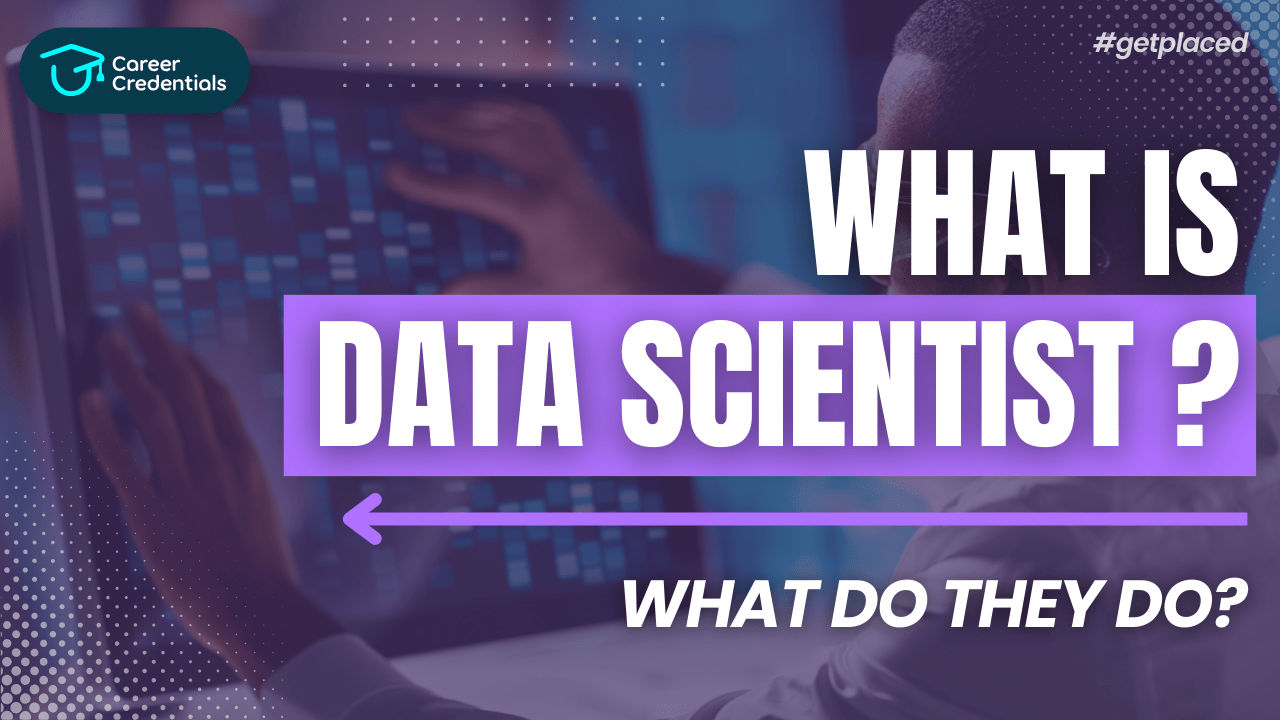What is Data scientist ? What do they do ?

In today's ever-changing world of industries, a new hero has emerged: the data scientist. But who exactly is this mysterious figure, and what makes them so important for businesses today? Let's dive in and uncover the core of data science and why data scientists are crucial for our data-focused world.
The Rise of the Data Scientist
Data scientists are like the hidden heroes of our digital age. They bring together skills from math, science, stats, and programming to help make important decisions. Their main job is to gather, study, and explain large amounts of data to help companies know what to do.
The idea of a data scientist started around 2008, when Facebook and LinkedIn first used this job title. Soon after, a Harvard Business Review article called it "the sexiest job of the 21st century." Since then, the demand for data scientists has only grown. Companies are eager for these experts who can work magic with machine learning and predicting the future.
Check Out: AI and Data Scientist Roadmap by Career Credentials for FREE !!
The Art and Science of Data Science
At the heart of data science are fascinating stories waiting to be discovered within huge piles of data. Imagine a data scientist diving into things like customer behavior, market trends, financial risks, cybersecurity, and even medical info. They use special tools to find patterns and trends that aren't obvious to others.
In businesses, data scientists are like detectives, digging through data to predict what customers might do next, find new ways to make money, catch fraud, and help in many other ways. But their work isn't limited to companies; they also help healthcare providers, schools, governments, and sports teams.
Must Read: Devin: The Rise of the AI Software Engineer by Career Credentials
The Profile of a Data Scientist
What makes a data scientist special? It's not just about being good with computers; it's also about being curious, solving problems, and working well with others. They use tools like Python, R, Scala, and SQL to analyze data and create reports.
To become a data scientist, many start with a technical degree like in computer science or math. But learning never stops! There are lots of courses online to help anyone become a data expert.
Data scientists are well-paid because they're in high demand. On average, they earn a lot more than other jobs, which shows how important their work is.
Enroll Now: SQL Masterclass by Ashish Gadpayle
Data Scientist vs. Data Analyst: What's the Difference?
Sometimes people mix up data scientists and data analysts. While they both work with data, data scientists need more advanced skills. Data analysts help with things like organizing data and making visual reports.
Data scientists take on bigger challenges, from predicting the future with models to using machine learning. Data analysts focus more on making data easy to understand, usually under the guidance of data scientists. Data scientists also earn much higher salaries.
Watch Now: What is Machine Learning | By Prashant Sir
Citizen Data Scientists: The Helpers in Analytics
In the world of data, there's another group called "citizen data scientists." These are regular people at work who use data tools. They might not have formal training, but they're great at using tools to understand data better.
While they might not be coding experts, citizen data scientists are valuable in helping companies use data to make better decisions. From business pros to data-savvy employees, they bridge the gap between raw data and useful insights, often without the big salaries of data scientists.
Check Out: Top 14 Artificial Intelligence Applications by Career Credentials for FREE !!
The Journey of Data Science: Piecing Insights Together
Data science isn't just about numbers and computer tricks; it's like weaving a story from different parts of data. Each piece of the puzzle, from preparing data to predicting trends, helps businesses make smarter decisions. Data scientists are like architects, building insights from data threads.
But in this magical world of data, there are challenges too. Data scientists struggle with things like getting the right data and making sure it's accurate. The saying "garbage in, garbage out" reminds us of how important it is to clean and organize data correctly.
Read Blog: Exploring Machine Learning: Algorithms & Applications in Python
Conclusion: Embracing the Data Journey
In this era of data, data scientists are like guides, leading the way to better decisions. With their skills and passion, they dive into oceans of data to find insights that drive businesses forward. From predicting what customers might want to stopping fraud, their work has a big impact.
So, as we step into this data-driven world, let's embrace this new power. Whether you're a seasoned data scientist, an aspiring analyst, or just someone curious about data, there's a world of opportunities ahead. With every query, model, and graph, we move closer to a future shaped by the magic of data science.
Let the data adventure begin.
Confused About Your Career?
Don't let another opportunity pass you by. Invest in yourself and your future today! Click the button below to schedule a consultation and take the first step towards achieving your career goals.
Our team is ready to guide you on the best credentialing options for your aspirations.
Let's build a brighter future together!
Empower Yourself. Elevate Your Career at Career Credentials Where Education meets Ambition.

